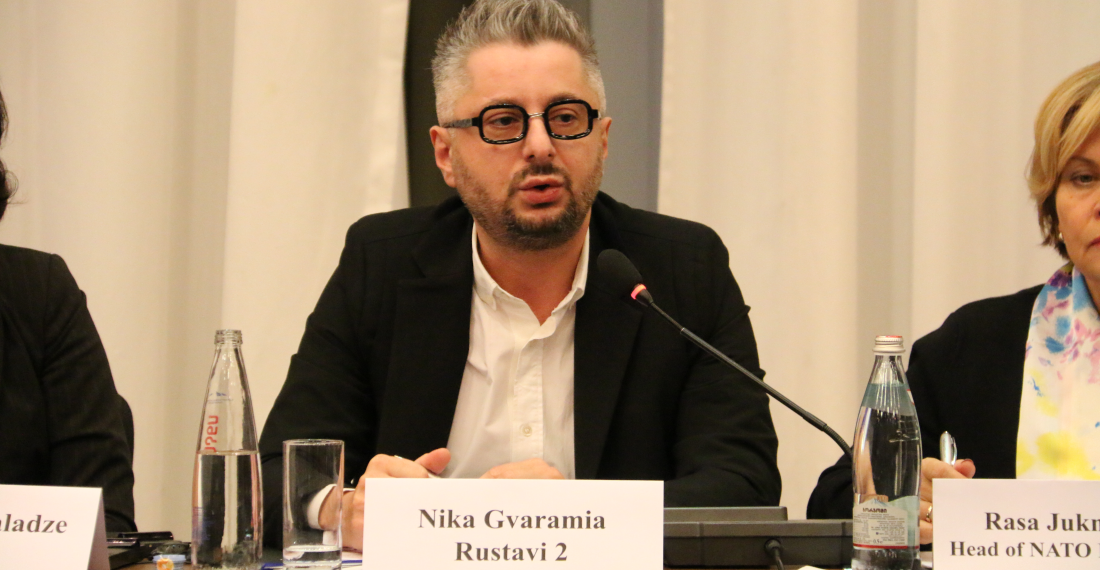The Georgian President Salome Zourabichvili on Thursday (22 June) pardoned Nika Gvaramia, the head of the pro-opposition TV channel Mtavari who had been convicted in a Tbilisi court for allegedly embezzling money as the director of another TV company, Rustavi 2.
His imprisonment had widely been seen as politically motivated, with the EU and the US having previously expressed concern over his sentence.
President Zourabichvili had recently come under increasing pressure from opposition groups and civil society to pardon Gvaramia, as she possesses the right to do so as President.
Announcing her decision on Thursday evening, President Zourabichvili declined to comment further on her reasons for issuing a pardon while also "aiming a thinly-veiled barb at those attempting to influence her", according to OC Media.
"I just want to remind you of what I also said in Brussels, that such a decision, the discretionary right of the president, is not subject to anyone’s pressure, advice, recommendation or any other type of threat […] this is the president’s decision", President Zourabichvili said.
"I made this decision after all legal steps were exhausted on 19 June, when the Supreme Court did not accept the cassation appeal. I am not going to give any explanation for this decision, because it is my discretionary right that I use today."
Pardon overturns court ruling on 19 June
Previously, on 19 June, the Supreme Court upheld the prison sentence for Nika Gvaramia. This drew a statement from the U.S. Embassy in Georgia, saying "the U.S. Embassy reiterates our deep concern about the continued imprisonment of Nika Gvaramia. The United States has raised questions and concerns regarding the case since its inception, including the timing and nature of the charges, as well as the sentence."
"Even the perception of selective or politically motivated justice puts Georgia’s European future at risk, and undermines the rule of law, constitutional protected human rights, and democracy itself."
Meanwhile, one of the 12 points on Georgia's "to-do list" from the EU in order to obtain candidate status, was to "undertake stronger efforts to guarantee a free […] media environment, notably by ensuring that criminal procedures brought against media owners fulfil the highest legal standards", believed to be a reference to the case of Nika Gvaramia.
Welcoming President Zourabichvili's decision to pardon Gvaramia, Gulnoza Said, the Committee to Protect Journalists's Program Coordinator for Europe and Central Asia said that they "are thrilled that Nika Gvaramia has been pardoned. He should never have been jailed, and his continued imprisonment stood at odds with the country’s purported commitment to press freedom."
In a statement on Twitter, Georgian Parliament Speaker Shalva Papuashvili said that Gvaramia's pardon, "does not give us much hope for solving the polarization problem: The previous two Western-brokered cases of pardon by President Zourabichvili, those concerning convicted criminals Giorgi Ugulava and Giorgi Rurua, did very little, if anything, for alleviating political polarization and mitigating the opposition’s radical ways."







